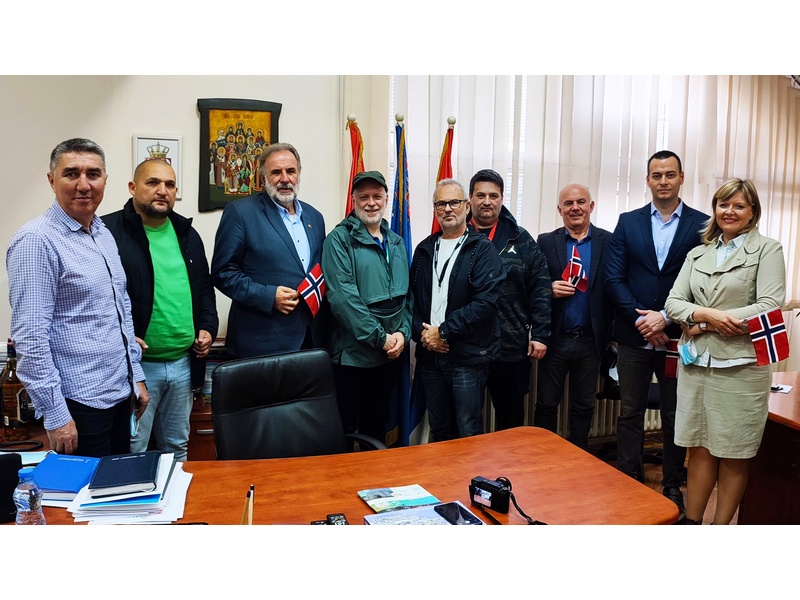

PUBLISHED 24.11.2021

The film crew from the Kingdom of Norway, which is shooting parts of a film about the suffering of Serbian internees during the Second World War in Serbia and Nis, visited Municipality of Palilula. The author part of this team of the film “Death Camp in Karašjok”, Kjetil Palmkvist, film director, Terje Holm, expert associate in the film and longtime journalist of the Norwegian media and Branko Dimeski, film producer, on behalf of the President of Palilula welcomed Prof. Dr. Miško Živić, Jovica Ralić, members of the Municipal council and Lazar Dinić, vice president with associates. The guests from Norway were given special symbolic gifts.
In a statement for the Nis media, the film’s director Kjetil Palmkvist pointed out that interviews with the families of the detainees and Serbian historians would be conducted, and the locations from which the Serbian detainees were sent to die in Norway would be recorded.
Historian Knut Flovik Toresen is working on the historical part, which follows the plot of the film with arguments, and a collaborator in Serbia for this team will be the history teacher from the elementary school “Bubanjski heroji” in Nis, Djordje Bojanic.
The Embassy of the Republic of Serbia in Oslo and the Church Municipality of St. Basil of Ostrog from Oslo and the Association of Serbian Associations supported the realization of this film.
Serbs, interned in German camps in occupied Norway, were forced to work on the construction of the road, better known today as the “Bloody Road” in extreme weather conditions, and the Norwegian local population helped prisoners of war as much as they could. The friendship that developed between the prisoners and the local population continued through the cooperation of municipalities and cities many years later.
In 2002, the City of Nis renewed cooperation with the Municipality of Saltdal Commune (Kingdom of Norway) by signing a Letter of Intent. Cooperation began in 1986, but was suspended due to wars and sanctions. The roots of this friendship date back to the Second World War, when the Germans, from various camps throughout Yugoslavia-Serbia, including the Red Cross camp in Nis, picked up 4,500 wounded and captured members of the national liberation movement and sent them to Norwegian camps. The fate of the prisoners, who were interned in German camps in occupied Norway from 1942 to 1945, and their suffering is recorded in the book “Varden” – a book of the dead and stories of friendship, Nis journalist Sasa Dimitrijevic, one of the founders of the Yugoslav-Norwegian Society friendship, who has been working and living in Oslo for several decades, (Dragan Vidojković, EKOpolis)